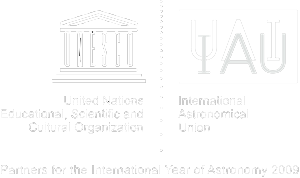This month EU-UNAWE took part in our first Ecsite event since joining the network last year. The events was a five-day interactive and intensive international training course run by FEAST (Facilitating Engagement of Adults in Science and Technology), that included workshops, discussions, role-playing and presentations from experienced European adult trainers. The course was hosted by Science Centre, NEMO in Amsterdam, Netherlands, from 9 to 13 September 2013.
A selection of 45 explainers (also called animators, guides, edutainers, facilitators, mediators, pilots, etc.) and young scientists involved in outreach activities at science centres, museums, and outreach programmes around the world attended the course, which in-line with the FEAST project goals, was designed to train participants to properly support parents; refresh and update the science and technology that they learned at school and to empower them to support their own children’s science and technology education.
Many studies have shown that the involvement of parents in their children’s learning is plays an important role in their children’s interest in science, and even effects their ability to learn. When parents play an active role, their children achieve greater success as learners, regardless of their background. In fact, the more intensely parents are involved, the more confident and engaged their children are as learners and the more beneficial the effects on their achievements.
The week-long course consisted of five family science workshops about a range of science and technology topics, from floating and sinking, to mechanics, robotics and sound. Each workshop was designed to introduce inquiry-based activities, deepen participants' knowledge of different public needs and, in particular, highlight the different parent-child relationships encountered in science centres and museums, and how explainers should adapt to help create an optimal learning experience for the family.
During discussion sessions participants took time to reflect on the role of their institutions in uniting science and society, shared their previous experiences, activities and programmes with the other participants and discussed how to be proactive when back to their institutions, also disseminating the newly acquired knowledge to their colleagues.
By the end of the week a number of conclusions were agreed upon by all workshop participants, regarding the role of the explainer in facilitating parent-child learning relationships:
- Explainers should stimulate investigation and inquiry by asking only open-ended questions and not giving away the solution.
- Explainers must be flexible, and ready to adapt to a variety of family dynamics, cultural differences and levels of confidence.
- The explainer's role is to make every family comfortable with their own level of knowledge.
- Competition was widely regarded by participants of the training course as a negative tool in children's workshops, often depleting the confidence of both children and parents in their own abilities.
- Investigation is a fundamental part of learning and relating workshops to real life motivates children and helps them to decompose the material.
The workshops were presented by five FEAST member institutes: NEMO (the Netherlands), Techmania (Czech Republic), Hiša Eksperimentov (Slovenia), Teknikens Hus (Sweden) and Museo Nazionale Della Scienza e Della Tecnologia Leonardo da Vinci (Italy). Each workshops is currently being adapted and translated for use in science centres and museums around the world. If you'd like access to the workshop guides, visit the FEAST portal and become a member of the Hub to gain access to workshops, activities to do at home and much more, at feastportal.eu.













